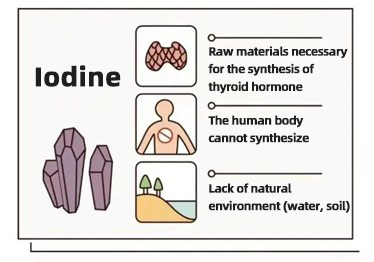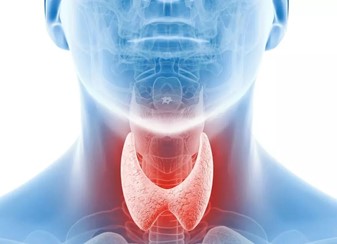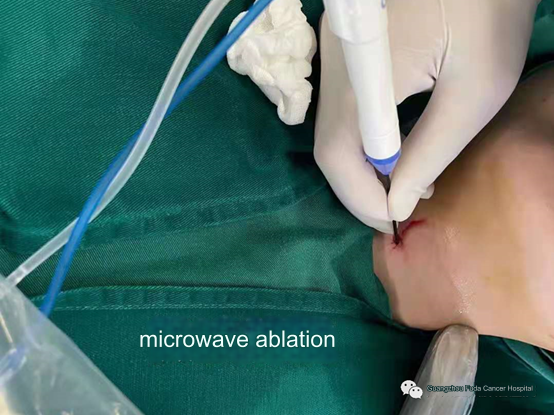Iodine is an essential trace element for the human body and an important raw material for the synthesis of thyroid hormones. It plays an important role in promoting growth and development, participating in brain development, regulating metabolism, and affecting the functions of other organs and systems in the process of maintaining body health. The thyroid gland is the organ with the strongest ability to accumulate iodine , so iodine intake is closely related to thyroid disease. May 15, 2024 is the 31st National Iodine Deficiency Prevention and Control Day. Let's learn about iodine and thyroid gland.

01Iodine and Thyroid
Studies have shown that there is a U-shaped relationship between iodine intake and thyroid disease, which means that both insufficient and excessive iodine can increase the risk of thyroid disease.

If iodine deficiency occurs for a long time , in order to compensate for the insufficient iodine intake in the food, the thyroid gland must mobilize its reserved iodine to maintain normal thyroid function. Over time, the thyroid gland's reserved iodine will be depleted, making goiter and hypothyroidism more likely to occur .
On the other hand, long-term excessive iodine intake will also disrupt the normal function of the human thyroid gland, leading to imbalance in the thyroid gland's own regulation and dysfunction, and then leading to thyroid diseases such as goiter and hypothyroidism . It can also induce or promote the occurrence and development of autoimmune thyroiditis .
02Iodine and thyroid nodules
Thyroid nodules are one of the most common endocrine diseases and can be screened through B-ultrasound, thyroid function tests, etc. Iodine deficiency is the most studied epidemiological risk factor for nodular thyroid disease. Studies have confirmed that long-term iodine deficiency, overcompensation of the body, thyroid hyperplasia, and repeated thyroid hyperplasia are prone to form thyroid nodules. However , the relationship between high iodine status and thyroid nodules is still controversial.
Is the increase in thyroid cancer caused by iodized salt? There is currently no evidence that iodized salt is associated with the high incidence of thyroid cancer. In recent years, the incidence of thyroid cancer has continued to rise. From the perspective of incidence, women are slightly higher than men, and rural areas are higher than urban areas. There are two main factors behind the year-on-year increase in thyroid cancer: on the one hand, the high incidence of thyroid cancer is related to ionizing radiation, environment, diet, lifestyle, mental stress and other factors; on the other hand, in recent years, the rate of medical treatment and health examinations has increased significantly, especially the widespread application of high-resolution B-ultrasound and fine needle aspiration cytology diagnostic technology in clinical practice, which has greatly enhanced the ability to diagnose thyroid cancer in the early stage.
It is worth noting that the vast majority of thyroid cancers begin as nodules and are often discovered during physical examinations. Most of these nodules are caused by the overgrowth of normal thyroid cells, while a small number of nodules are caused by the malignant proliferation of thyroid cells, known as "malignant thyroid nodules", which are prone to develop into thyroid cancer. Therefore, if a malignant thyroid nodule is suspected, the patient should go to the hospital for a follow-up visit as soon as possible.

Of course, if you find a thyroid nodule, you don't have to worry too much. Microwave ablation of thyroid nodules is a good choice. This treatment is to accurately puncture a microwave ablation needle into the thyroid nodule through the skin under the guidance of ultrasound imaging, using the microwave thermal effect to kill tumor cells, causing the nodule or cancer focus to coagulate and necrotize. After the operation, the nodule will continue to shrink or even disappear, which can only ablate the lesion without damaging normal tissues or leaving scars. At the same time, it can improve the body's immunity and inhibit the spread of tumor cells, and ultimately achieve the same effect as surgical resection.
03Scientifically supplement iodine to keep away from diseases
The main source of iodine for the human body is food, which accounts for 80% to 90% of the daily iodine intake. Iodine is metabolized every day in the human body. If iodine intake is stopped, the iodine reserves in the body are only enough to last for two to three months. Therefore, continuous and appropriate iodine intake is very necessary to maintain normal thyroid function.
For iodine-deficient areas, consuming iodized salt is the safest, simplest and most effective way; for high-iodine areas or areas where high-iodine goiter is prevalent, it is recommended not to take additional iodine supplements; for people with thyroid diseases, such as hyperthyroidism, thyroiditis, and autoimmune thyroid disease, iodine supplements are not recommended, or they can decide whether to take iodine supplements according to the doctor's advice. Iodine should not be too much, but it is also indispensable. The key is to take in the right amount of iodine!